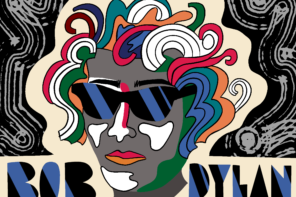FKA twigs, the stage name for singer-songwriter and producer Tahliah Barnett, released her last full length album, LP1, in 2014. I was 16 years old, and only just beginning to expose myself to the vast world of music. LP1 was a game changer: it opened my eyes to sounds of electronic, pop, and R&B music unlike anything I had heard before. Its combination of warped, wobbly synth textures, glitchy drum production, anthemic melodies, and Barnett’s uniquely characteristic voice, was the kind of music discovery you only get once in a lifetime. This pattern of sounds has since become massively influential— just look at Rihanna’s Anti to see how.
FKA twigs released her debut at the peak of an era defined by a brand of dark, edgy R&B music that depicted brooding emotion as a disguise for toxic masculinity, and her album offered a completely different perspective. LP1’s representation of women’s sexuality and romantic experience appeared to be a direct response to the kinds of abusive male behaviour being normalized at the time (“Ringtone on silent / And if she stops, then I might get violent” is a lyric from a much beloved album). twigs blended this fresh perspective with a sonic palette of extraterrestrial, deconstructed pop music and a general visual aesthetic that refused to conform to industry beauty standards. “You’re shooting me in a way that’s only appealing from a man’s point of view,” twigs told her cameraman while shooting the music video for “Pendulum,” the emotional centrepiece of her first record.
twigs is wide awake and self-aware; she has evolved from a young person exploring love, sexuality, and independence into someone who better understands themselves and what they want.
Fast forward five years – following 2015’s mind-bending M3LL155X EP and a high-profile relationship with actor Robert Pattinson – FKA twigs has released her second full-length album MAGDALENE. This time around, she nurtures different modes of expression, such as a newfound love for wushu sword fighting which she plans on incorporating into her live show. “I named my sword Lilith [Adam’s first wife], who said she didn’t want to be subservient to men. So she got banished to hell,” twigs told Zane Lowe on Apple Beats 1 radio. The symbolism is… striking, and apt for a new album that revolves around the failed navigation of a passionate but ultimately toxic romance and the tormenting questions that linger in its aftermath.
The album begins with “thousand eyes,” a song whose initial a cappella vocal lines mimic “Preface,” the starting track off of LP1. On the latter song, twigs expresses emotion through pure intonation before subsuming herself into a cacophony of distorted synths and drums. “thousand eyes,” on the other hand, finds twigs describing her mindset with clarity over a comparatively quiet, subdued instrumental: “If I walk out the door, it starts our last goodbye / If you don’t pull me back, it wakes a thousand eyes.” twigs is wide awake and self-aware; she has evolved from a young person exploring love, sexuality, and independence into someone who better understands themselves and what they want. If LP1 was provocative and vulnerable in its rawness, then MAGDALENE feels mature and wistful in its incessant contemplation.
On “home with you” and “sad day,” twigs reflects on the miscommunications and events that signaled the spiraling of her relationship, and yearns for a world where things may have been different. In “mirrored heart,” she compares herself to other couples, remembering her ex’s ambivalence and often unreciprocated affection. “holy terrain,” featuring Future, is the album’s most conventional banger. It’s also where twigs explicitly describes her desires, which contrast with Future’s noncommittal, contradictory verse. The rapper acts as the perfect foil within the album’s heartbreak narrative: “Makin’ you fall apart, watch me drown in my pain / I feed you poison, forever my lady…We die, we die together, the prophecy complete / We gettin’ high, we touch the sky until we deceased,” he raps, perfectly encapsulating the thematic tension between emotional frustration and alluring passion. On “mary magdalene,” a song which provides the album’s primary allegory, twigs reverses that dynamic by writing her own narrative as she refuses to be defined by another man’s pain: “A woman’s prerogative, a woman’s time to embrace, she must put herself first,” twigs sings, “I can lift you higher, I do it like Mary Magdalene, I’m what you desire.”
The album’s most shining instrument, however, is twigs’s voice itself.
Sonically, the album veers from the electronic-heavy emphasis of her previous work by incorporating more organic elements. This produces countless breathtaking moments — the violins on “sad day” and the symphonic climax of “daybed” are particularly gorgeous. But that doesn’t mean the record completely shies away from digital pleasures – twigs still recruits some of the biggest producers in electronic music, namely Nicolas Jaar, Daniel Lopatin, and Skrillex. MAGDALENE is replete with weird, mesmerizing beats: the chorus of “mary magdalene” bleeds into a synthetic harp arpeggio that plays over a head-banging trap instrumental; “fallen alien,” an exercise in dissonance, intersperses its hellish, otherworldly beat with a beautiful gospel sample, (one of many church allusions throughout the record). “holy terrain” is a standard pop-rap and R&B crossover with production help from Kenny Beats that will nonetheless stick in your mind for days to come.
The album’s most shining instrument, however, is twigs’s voice itself. She carefully oscillates between vulnerable and defiant, somber and hopeful, bookending every emotion with her iconic soprano. Simple moments such as her extension of the word ‘lonely,’ on “home with you,” or her wailing of the song’s title at the end of “daybed,” will give you chills.
MAGDALENE finishes with the stunning “cellophane,” easily one of the best songs of the year, if not the decade. It’s the most minimal composition twigs has ever written, containing only a soft piano, a collection of rising ambient synths, and a rhythm section comprised almost entirely by a man’s whispering stutters. “They want to see us, want to see us apart,” she sings, a clear reference to her over-publicized relationship with Pattinson. The song is a reconciliation: Their love was doomed from the start, their problems exacerbated by a media that twisted and spit their lives back at them — a confounding of fiction and reality that fundamentally affected their own perceptions of intimacy. Later in the song, however, she tells him that she tried to make it work, and wonders why he didn’t do the same. This album is sad, and it’s a testament to FKA twigs’s songwriting prowess that her personal religious allegory of reflection and redefinition is able to resonate the world over. It’s a record that demands repeated listens, and I’ll happily oblige until Ms. Barnett decides to bless us again.








